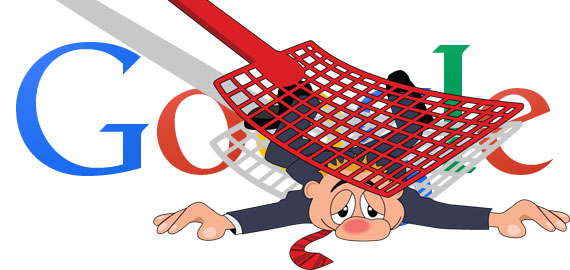Google Updates Its Page Layout Algorithm To Go After Sites “Top Heavy” With Ads
Google’s head of search spam, Matt Cutts, announced that Google has released a refresh of its Page Layout Algorithm. The filter, also known as the Top Heavy algorithm, downgrades the ranking of a web page with too many ads at the top or if the ads are deemed too distracting for users. Cutts said the algorithm […]

Google’s head of search spam, Matt Cutts, announced that Google has released a refresh of its Page Layout Algorithm. The filter, also known as the Top Heavy algorithm, downgrades the ranking of a web page with too many ads at the top or if the ads are deemed too distracting for users.
Cutts said the algorithm was refreshed last Thursday, February 6. Here’s his tweet:
SEO folks: we recently launched a refresh of this algorithm: https://t.co/KKSXm8FqZW Visible to outside world on ~Feb. 6th.
— Matt Cutts (@mattcutts) February 10, 2014
This would be the third confirmed update to the Top Heavy algorithm, with the full release schedule as follows:
- Top Heavy 1: Jan. 19, 2012 (impacted less than 1% of English searches)
- Top Heavy 2: Oct. 9, 2012 (impacted 0.7% of English searches)
- Top Heavy 3: Feb. 6, 2014 (impact not stated)
Background On & Recovering From Top Heavy
What is the page layout algorithm? As we quoted from Google originally:
We’ve heard complaints from users that if they click on a result and it’s difficult to find the actual content, they aren’t happy with the experience. Rather than scrolling down the page past a slew of ads, users want to see content right away.
So sites that don’t have much content “above-the-fold” can be affected by this change. If you click on a website and the part of the website you see first either doesn’t have a lot of visible content above-the-fold or dedicates a large fraction of the site’s initial screen real estate to ads, that’s not a very good user experience.
Such sites may not rank as highly going forward.
See also our original article for when Top Heavy was first released, for advice about how a site that’s caught may have to wait until the next release for any changes it’s made to restore rankings.
We have not seen many complaints within the SEO community around February 6th or 7th about any update like this, which suggests it impacted fewer sites than when Google updates other filters like the Panda or Penguin algorithms.
Related stories
New on Search Engine Land